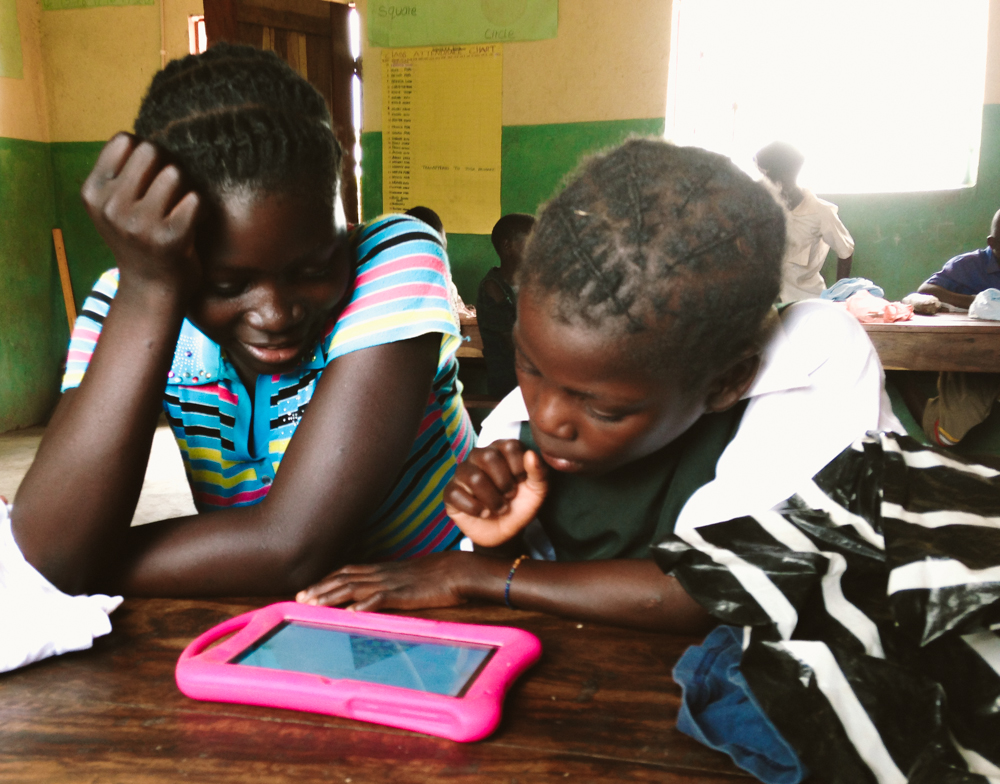Will Technology Replace Our Teachers?
 The rapid decline of technology costs and the strong push for it to be included in the modern classroom has rekindled a decades-old debate: Will technology replace teachers?
The rapid decline of technology costs and the strong push for it to be included in the modern classroom has rekindled a decades-old debate: Will technology replace teachers?
At Impact Network, we use technology in all of our 25 classrooms across the Eastern Province of Zambia. We use iSchool ZEduPads to deliver lesson plans to our teachers, as well as high-quality lessons to our students with projectors. Our management staff have smart phones that they use for communication and even for completing reports. Finally, we use solar panels on our roofs to power everything we use.
We love technology, but we also recognize the main purpose of tech – it’s a tool. We use it to build skills across all aspects of our schools – for our teachers, for our students, and even for our broader communities. We use it as a way to build our teachers up, not tear them down. And most importantly, we see that our students benefit most when there is a mix to our approach. Half of our lessons are more traditional – a teacher delivers lessons with some group work and exercises built-in. The other half incorporate the projector and a tablet. While some organizations “drop” technology into classrooms, we know that for our schools, technology needs to be accompanied by an integrated and supportive approach to teaching. For example, we have trained supervisors who spend their days observing our 45 teachers. They provide weekly support, giving real-time feedback, demonstrating best practices, and helping teachers plan their lessons. On top of this, we also do more formal, monthly, training of our teachers. While some of this training is geared towards the basics of using technology, the bulk of it focuses on how to integrate the technology into the classroom effectively.
What can and can’t technology do? For us, technology offers resources to teachers—lesson plans, reading content, and forms of assessment including quizzes and games—that can help them assess whether their students understand lessons. For students, our schools offer the opportunity to gain familiarity with using technology, an increasingly important skill globally and a priority for Zambia. The tablets also provide activity-based lessons for teachers to use, which help to keep students engaged and motivated in the classroom.
Education is fundamentally about the relationship between student and teacher. Teachers do not simply impart knowledge and give tests—they inspire students, understand what each individual child needs in order to learn, and act as role models. Technology, like anything, is only as effective by the individual using it.
LEARN + CONNECT
Learn more about Impact Network
Connect via Facebook, Twitter, and Instagram
FROM THE EDITOR
At Conscious, remarkable people and organizations inspire us, and so we set out to tell stories that highlight human interest stories, global initiatives, innovation, community development, and social impact. You can read more stories like this when you subscribe
Editorial Collaborator: Reshma Patel of Impact Network has joined conscious to produce a monthly column to educate us about the processes involved in developing schools within rural communities of Zambia. She points out the many aspects of growing a school and working with the local communities to sustain it. Read our interview with Impact Network here and follow the monthly column here.



